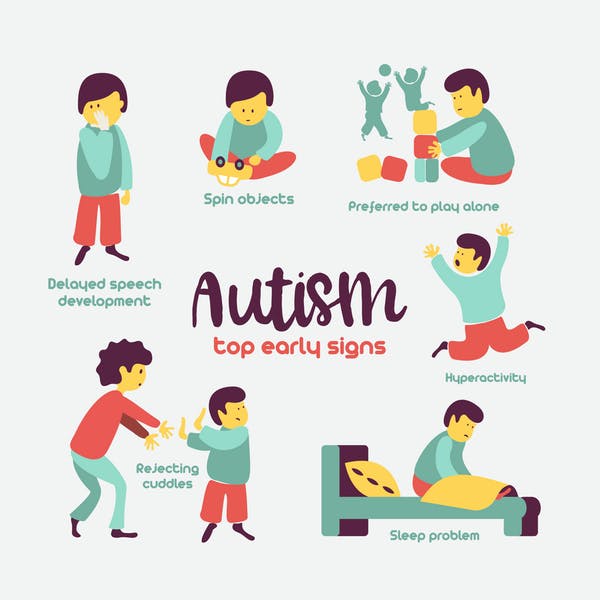After-school and weekend activities for children with disabilities can build self-esteem, skills, friendships and a sense of belonging. Interacting in a shared endeavor with other children can be especially rewarding.
MetroKids asked experts in several special needs areas to recommend appropriate activities. Here are their suggestions.
AD/HD
Suggestions from Delaware Valley resident Marie Paxson, national president, Children and Adults with Attention-Deficit/Hyperactivity Disorder (CHADD).
 Drama: Drama activities naturally model behavior and offer students affected by AD/HD the chance to learn social skills and examine new ideas in a controlled, predictable (scripted) setting. Drama offers the chance to shine individually and still work with others in creating a performance.
Drama: Drama activities naturally model behavior and offer students affected by AD/HD the chance to learn social skills and examine new ideas in a controlled, predictable (scripted) setting. Drama offers the chance to shine individually and still work with others in creating a performance.
Industrial arts or technology: Many students affected by AD/HD find the chance to build something appealing. Students who may have trouble with abstract concepts can grasp, literally, new ideas and fine motor skills when they work with their hands. They have the opportunity to be loud and pound, drill or mold with clay in a supervised setting.
Photography: Not everyone sees the world in the same way. For students with AD/HD, learning to take pictures of how they view the world can be a liberating experience. From the skills of handling the camera to computer imaging or physical film processing and photo printing, a young person gains confidence, attentive skills and the chance to share what they see with those around them.
Sports: Many young people affected by AD/HD have found a good mix of excitement and action in various school sports. They meet new friends and work within a structured system with personal opportunities to succeed and the common goal of winning.
Video game clubs: Many young people enjoy video games that offer high stimulation. In a club setting, students can work cooperatively and have the chance to share information on various games. They also can play individually without the stress of competing and still have the companionship of fellow gamers.
Asperger Syndrome
Suggestions from Deidre Wright, president, ASCEND Group, Inc. The Asperger Syndrome Alliance for Greater Philadelphia.
Drama classes: Kids learn to read social cues, work collaboratively, have meaningful conversations and make friends. Creativity is encouraged.
Etiquette classes: Kids not only learn the rules of social behavior, they gain an understanding of their importance. It’s not just mom telling them how to behave, it’s an expert.
Hippotherapy: Kids on the autism spectrum sometimes have sensory and sensory integration issues. Moving with a horse can help them understand where their bodies are in space, aiding coordination.
 Library clubs: The library can be a safe haven for a kid who’s quirky. Librarians are often understanding. Some libraries have video game clubs or other specialized clubs that can appeal to special interests.
Library clubs: The library can be a safe haven for a kid who’s quirky. Librarians are often understanding. Some libraries have video game clubs or other specialized clubs that can appeal to special interests.
Robotics and Lego clubs: Many kids on the autism spectrum like to build and put things together. Clubs require teamwork to solve problems.
Scouting: Many kids with Asperger syndrome like the badges and awards, the structure of a hierarchy, of going from level to level. Expectations are clear. Participation in group projects and camping builds social skills.
Sports challenger teams: Some local recreation departments or organizations offer sports teams, such as soccer or T-ball for kids who have disabilities. It’s a way to be on a team for a child who processes slowly.
Communications Disorders
Suggestions from Deborah Adamczyk, director of school services, the American Speech-Language-Hearing Association.
Community service projects: Activities involving simple repetitive tasks such as food drives or packing school supplies for needy families teach the value of serving others while building friendships and practicing skills such as categorization, following directions, sequencing and describing.
 Cooking classes: Tasks involving simple menus and group dining facilitate social skills and can be assigned based on ability levels. They help students learn new vocabulary, describe, sequence and interact with others on more focused topics.
Cooking classes: Tasks involving simple menus and group dining facilitate social skills and can be assigned based on ability levels. They help students learn new vocabulary, describe, sequence and interact with others on more focused topics.
Groups that focus on making a product: Students learn to organize, sequence and focus.
Pet care and animal groups: Students can engage with others, minimize stress, and demonstrate expertise.
Recycling groups: Members collect and prepare materials to be sent to a recycling center, teaching the value of community service, interacting with new people, building friendships, following directions and vocabulary.
Sign language club: Students engage with one another while learning a skill, focus, and following directions. This is especially good for children with communication disorders related to hearing loss.
Intellectual and Developmental Disabilities
Suggestions from Leigh Ann Davis, assistant director of professional & family services, The Arc of the U.S. Her suggestions pertain to many types of physical disability as well.
After-school programs can be the same types of programs any child without disabilities may be involved in, but which focus on integrating children with disabilities into community programs and activities. Examples include:
- Scouts
- Martial arts classes
- YMCA programs
- 4-H
- The arts
After-school sports programs for physically disabled or visually impaired youth are developing through the efforts of organizations including American Association of Adapted Sports Programs (AAASP), www.aaasp.org. This group and others are laying the foundation for a network of school-based adapted athletic programs across the U.S.
 Adaptive recreation classes and sports such as basketball, baseball, softball, bowling, and tennis are offered in many cities. Contact your local parks and recreation department about adaptive recreation options.
Adaptive recreation classes and sports such as basketball, baseball, softball, bowling, and tennis are offered in many cities. Contact your local parks and recreation department about adaptive recreation options.
Specialized programs and summer camps specific to children with disabilities such as diabetes, cancer, burns, autism, developmental disabilities and spinal cord injuries. The searchable MetroKids Camp Guide includes a special needs category.
Trying a variety of activities gives children a chance to learn what they like, adds to their skills and increases the likelihood of finding activities for lifetime participation.
Tom Livingston is executive editor of MetroKids.






